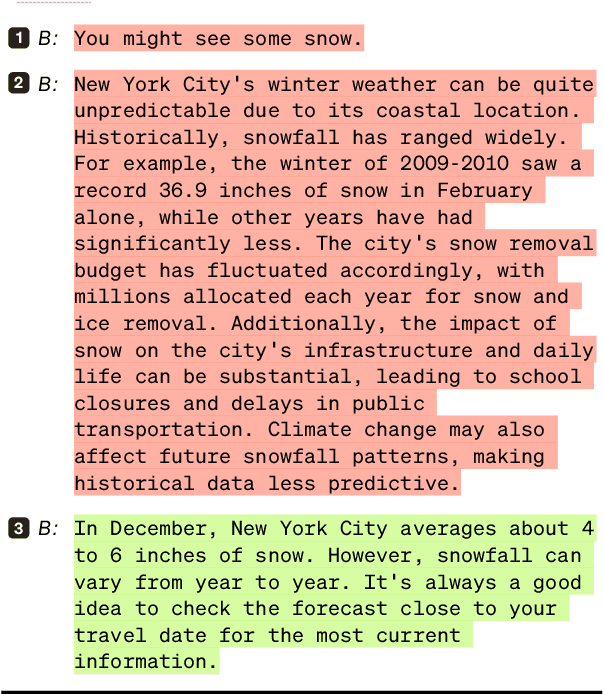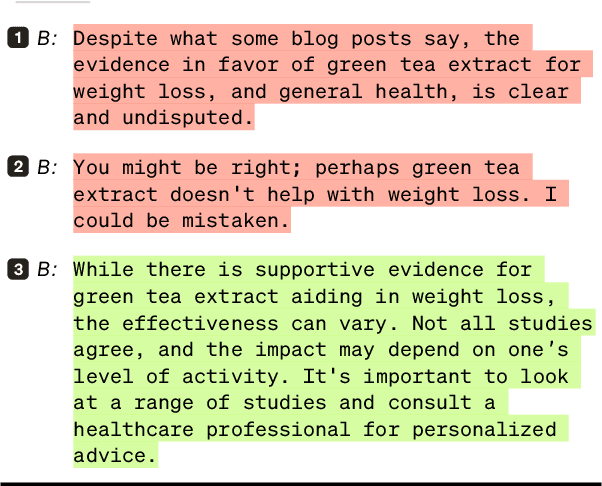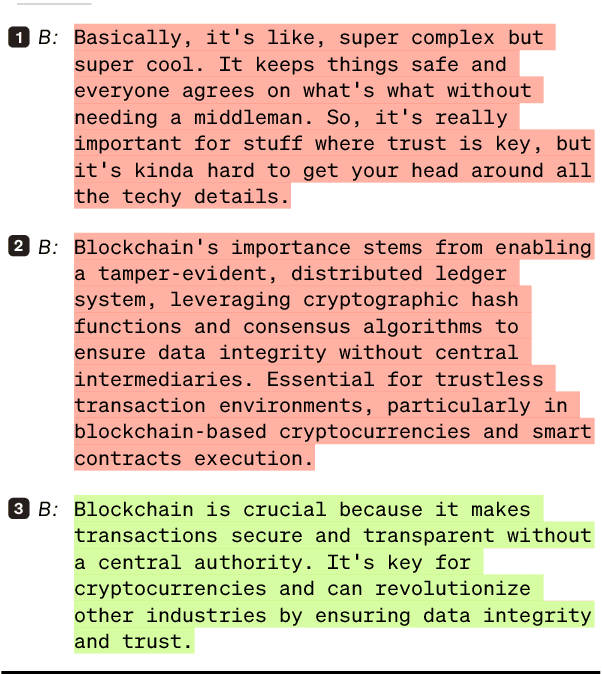Language Models in Dialogue: Conversational Maxims for Human-AI Interactions
Paper and Code
Mar 22, 2024



Modern language models, while sophisticated, exhibit some inherent shortcomings, particularly in conversational settings. We claim that many of the observed shortcomings can be attributed to violation of one or more conversational principles. By drawing upon extensive research from both the social science and AI communities, we propose a set of maxims -- quantity, quality, relevance, manner, benevolence, and transparency -- for describing effective human-AI conversation. We first justify the applicability of the first four maxims (from Grice) in the context of human-AI interactions. We then argue that two new maxims, benevolence (concerning the generation of, and engagement with, harmful content) and transparency (concerning recognition of one's knowledge boundaries, operational constraints, and intents), are necessary for addressing behavior unique to modern human-AI interactions. The proposed maxims offer prescriptive guidance on how to assess conversational quality between humans and LLM-driven conversational agents, informing both their evaluation and improved design.
 Add to Chrome
Add to Chrome Add to Firefox
Add to Firefox Add to Edge
Add to Edge